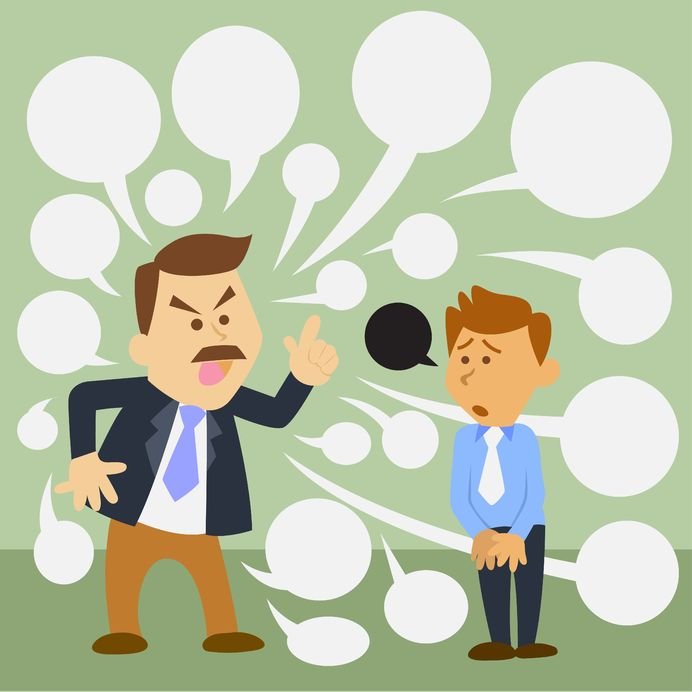We have all experienced a scenario where a co-worker or employee makes a mistake that causes either other employees or the customer grief.
While mistakes are not to be taken lightly, they will happen from time to time.
Being not only effective in correcting these scenarios, but also knowing how to handle your co-worker with respect is important. When done appropriately, you should be able to salvage the situation as much as possible, keep your relationship to your co-worker pleasant, and ultimately help the entire team grow stronger.
So, the question is, how do we react when a co-worker or employee has made a mistake?

Although frustration is the natural response, especially in scenarios where the mistake has the potential to be very costly, it is important to use your energy towards constructive measures and criticism. Simply blowing up on, or dismissing the co-worker outright, has the potential to make the situation more difficult to handle.
Not being harsh does not mean the employee or co-worker is free of blame. In many scenarios, a simple reprimand may be beneficial and appropriate. It will allow the employee to realize their mistake and build themselves up toward avoiding it in the future. Additionally, being able to express your frustrations in this scenario will help avoid stress and grudges.
Some bosses and co-workers, however, may take a less direct approach: compassion and curiosity. With this approach, the individual would suspend judgment in the moment in favor of coaching and future practice suggestions.
While both scenarios seem reasonable at first glance, what does research point towards as being the best option?
Ultimately, it says that being compassionate in your handling of employee and co-workers mistakes provides the best results.
Compassion can build loyalty in a team, as well as a sense of trust and belonging. Psychological research into the matter shows that positive relationships and work environments hold more weight in how a person views the satisfaction of their position than does their paycheck. A study by Jonathan Haidt of NYU showed that employee devotion can lead to the further admiration of a manager, and a positive work environment can lead to a better customer experience.
Anger and frustration, such as reprimands, have the potential to erode loyalty and create harmful self-doubt in workforces. Although they can potentially lead to learning experiences, they can also lead to embarrassment and feelings of ill-will. In his best-selling book Give & Take, Adam Grant (a professor at Wharton Business School) demonstrates that these feelings of ill-will can ultimately come back to haunt the workplace or the boss.
Increasing the stress of a work environment hurts creativity, workflow, and morale. Negative or angry responses are sure to lead to increased stress and a lack of confidence in your workforce. Environments of fear and anxiety cause our brains to feel unsafe, which is the worst quality any company could have. Adam Grant reflects on this situation by stating that employees are less likely to take creative risks “when you respond in a frustrated, or furious manner.”
Anger has its place, as it can lead us to stand up to unfair situations. However, putting this anger and frustration towards your employees and co-workers is very rarely constructive. Being compassionate and curious is almost always a better option for the workplace.
Three simple steps can help you respond in a compassionate and appropriate manner next time you find yourself in such a situation: reflect, consider their viewpoint, and forgive.
Reflect
Being calm enough to handle the situation in an emotionally appropriate manner is of utmost importance. Taking the time to chill for a moment can also give you a small window in which to consider the weight of the scenario.
If you rush into a reaction, you risk over-reacting or simply misunderstanding the situation entirely. Additionally, simply pretending not to be angry when you are bothered, is not convincing nor helpful.
Research into the subject has shown that conversation in this state tends to raise both persons’ heart rates, making for a much more stressful environment. Ultimately, keeping an appropriate amount of emotional detachment is the best strategy.
Consider their Viewpoint
They may have a valid point within their mistake, and even if they do not, empathizing with an individual will make it much easier to confront them.
Most of us know what it’s like to be in a lower position, dealing with intimidating superiors above us, so try and remember that feeling when confronting someone about a mistake.
Studies show that taking a detached viewpoint can help you see details you missed and make interactions go more smoothly.
Forgive
Empathy and forgiveness will ultimately strengthen your relationship with employees or co-workers.
A productive and happy workforce is bound to be more successful than one that is bogged down by insecurities and constant second-guessing.
Additionally, less stress will lead to less sick days being taken.
Dr. James Doty, Director of Stanford University’s Center for Compassion and Altruism Research and Education, points out that compassion over aggression does not let “them off the hook.” Instead, he suggests this compassionate response allows them to realize their mistake without having their confidence and work abilities destroyed.